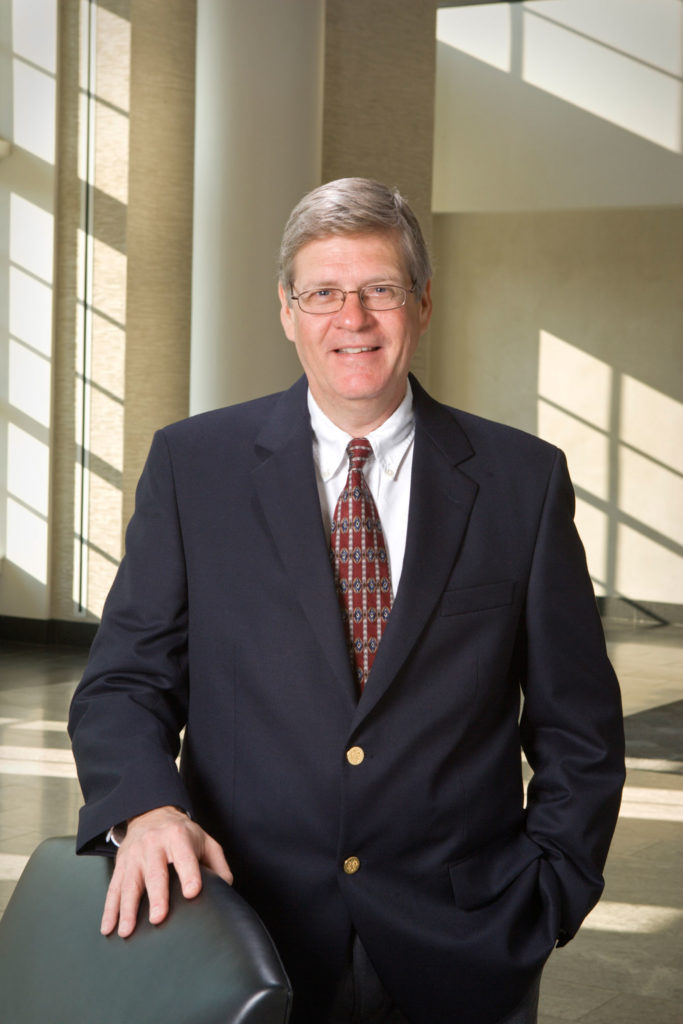Skim through UGA President Michael F. Adams’ 2007 State of the University address and you’ll notice that the College of Public Health is mentioned six times, the phrase “public health” an additional eight. Clearly, there’s a lot to boast about for one of the university’s newest colleges.
As one of fewer than 40 such institutions in the U.S., the new college aligns UGA more closely with top-tier institutions like Harvard, Yale, the University of North Carolina at Chapel Hill and UCLA. It also reflects the university’s efforts to expand its land-grant mission to aid the state’s needs, which evolve with time, according to Phillip Williams, dean of the college.
“Land-grant schools started in the 1800s to meet the needs present at that time, but our society has changed,” Williams said. “Many of the needs that were there in the 1800s are still there, but many others have been taken care of, so the broader mission of a land-grant university includes things like public health.”
So what is public health? It concerns the overall well-being of communities or populations through prevention of disease and promotion of healthy behavior, Williams said.
“The difference between public health and medicine is that medicine, generally, is considered to be treatment of an individual for a given situation. Public health is prevention. Instead of dealing with an individual, it is concerned with improving health for populations,” he said.
Headquartered in the Paul D. Coverdell Center for Biomedical and Health Sciences, the college combines the environmental health science department, the health promotion and behavior department, the newly created department of health policy and management and the epidemiology and biostatistics department. It also includes the Institute of Gerontology and the Institute for Health Management and Mass Destruction Defense.
“After working with other UGA faculty to get the main college structured correctly and approved, the next step has been hiring new faculty,” Williams said. “I am very pleased with the people we have attracted and their productivity. Public health programs are generally catalysts for attracting grant funding in addition to their teaching programs.
The college currently has the highest grant yield per faculty member in the university. Last year, the college brought in about $1 million more in research grants than it received in state operating support.
“As a new college, we’re working to develop specialty areas in which we can achieve national recognition,” he added. “For example, we have an excellent opportunity to develop expertise in veterinary public health. We’re one of only four colleges of public health located at a land-grant university and co-located with a veterinary medicine college, so we think it’s a good shot to do some good work.”
It’s not only a practical idea, Williams said, but an overlooked and timely issue. Many recent threats to public health are based in veterinary medicine. Issues like food safety concern poultry and livestock, and many emerging diseases—West Nile virus, bird flu and AIDS to name a few—have originated or are transmitted through animal populations.
Such cross-disciplinary approaches are common in the college, according to Williams. Many public health issues lend themselves well to working across departments, and it has created a culture of teamwork that may elude some older public health colleges.
The college also is expected to have increasing impact in gerontology, emergency preparedness, health disparities and workplace health.
“The disadvantage for this college is that we don’t have a large faculty and we’re not well established, but the advantage is that we are in a position to be able to do things in a new way,” Williams said.
He should know.
Williams became the school’s founding dean on Jan. 1, after serving as interim dean since January 2005. As the Georgia Power Professor of Environmental Health, he is an authority in toxicology and chemical exposures.
“I served as the interim dean and realized how much more there is to accomplish here,” Williams said. “I wanted to see it happen.”
In the short term, the college is working to gain accreditation from the Council on Education for Public Health. Currently in the middle of a two-year self-study, the college has scheduled a site visit for February 2009 and hopes to achieve accreditation that year.
“We have kept to a tight timeline, and like all schools, we want to be recognized nationally and certainly be among the top 20 colleges in the nation,” Williams said. “We are among a small group of top-tier institutions having colleges of public health and, in the long run, I do believe we will make our mark.”
